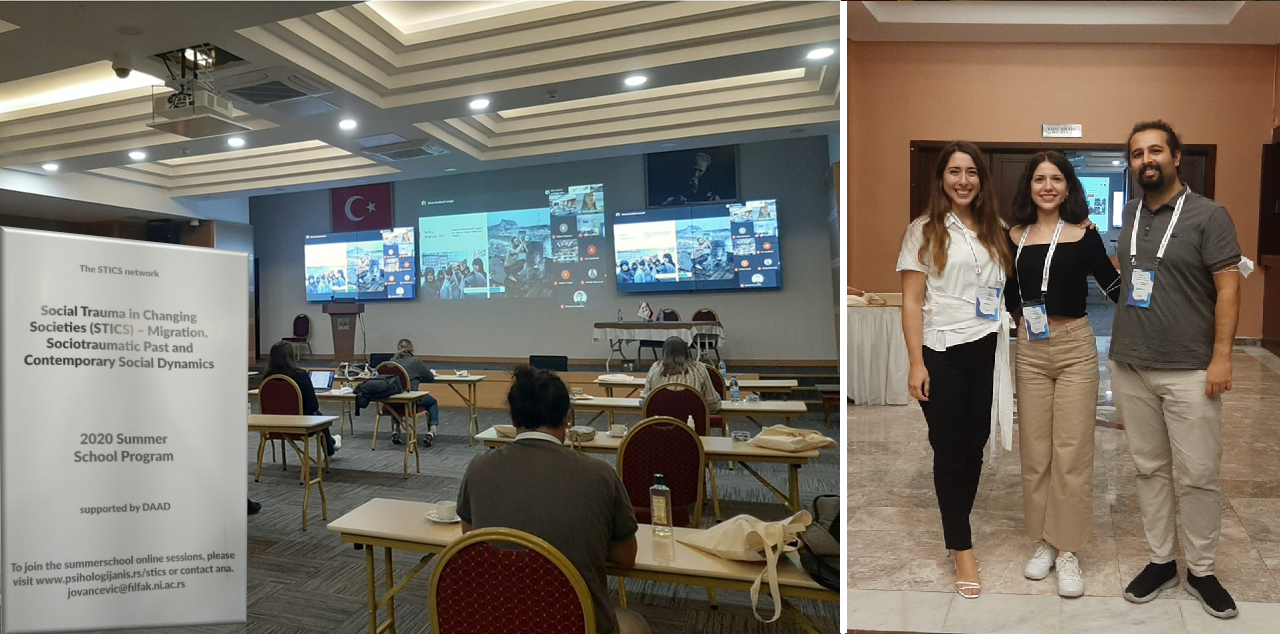GoKÇEP Öğrencileri “Değişen Toplumlarda Sosyal Travma” Yaz Okuluna Katıldı

Tarih: Date
DevClin Students Participated in International Summer School on Social Trauma in Changing Societies
Developmental Focused Clinical Child and Adolescent Psychology (DevClin) graduate students Elif Usta, Ceren Şavk and İsmail İnan participated and represented our program in Blended Learning Summer School “Social Trauma in Changing Societies (STICS) – Migration, Sociotraumatic Past and Contemporary Social Dynamics” which was held in 20th-26th September, 2020.
The STICS Project connects students and professors from universities in Bosnia- Herzegovina, Bulgaria, Germany, Serbia and Turkey, building upon results and resources from an intensive six-year cooperation in the DAAD research networks “Trauma, Trust, and Memory” and “Migration – Trauma in Transition”. It strengthens transregional academic cooperation on the frame topic of Social Trauma, which is highly relevant in all participating countries, with huge influence on the evolution of civil society. The main goal of the project is to contribute to the design and implementation of a social trauma informed approach to challenges of mass migration. The project also aims to enhance the international learning experience among the future generations of social scientists, policy makers and practitioners in various disciplines about how past and ongoing social-traumatic experiences of people on the move (refugees and migrants) and of members of host societies shape their interactions, creating conditions and environments that facilitate or hinder integration of refugees and their participation in the lives of the receiving societies in education, labor markets and various social as well as political processes. The project aims to move beyond the understanding of trauma as solely instigated by the individual and to be worked through by the individual. The research and the project activities aim to facilitate interdisciplinary and intersectoral (public authorities, NGOs and private sector) knowledge exchange on the impact of socio-traumatic historical experiences on current public attitudes and waning enthusiasm about integration of the refugees to the receiving communities.